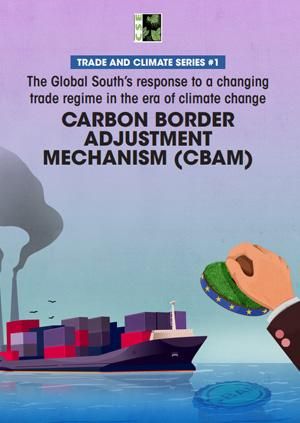Carbon Border Adjustment Mechanism (CBAM): The Global South's response to a changing trade regime in the era of climate change
In stock
The European Union's introduction of the Carbon Border Adjustment Mechanism (CBAM) marks a bold new experiment in global trade and climate policy. By taxing imports like iron, steel, cement, aluminium and fertilizers based on their greenhouse gas (GHG) emission intensities, the EU aims to level the playing field for its firms operating under the Emissions Trading System (ETS). However, this mechanism raises several critical concerns about its broader implications and fairness.
The impact of CBAM is likely to be disproportionately felt by developing countries, potentially hindering their economic growth in key sectors and access to global markets. CBAM also places the onus of decarbonization on developing countries, which ignores the disproportionate contribution of developed nations to the climate crisis and their past failures to channel resources for developing countries to decarbonize. Consequently, during COP 28 in 2023, developing countries raised serious concerns about the negative impacts of unilateral trade measures like CBAM on their economies.
Does the CBAM truly spur global decarbonization, or does it perpetuate existing inequalities and trade tensions? Our new report examines these questions.
| Year | 2024 |
|---|---|
| Language | English |
| Research Type | Download |







